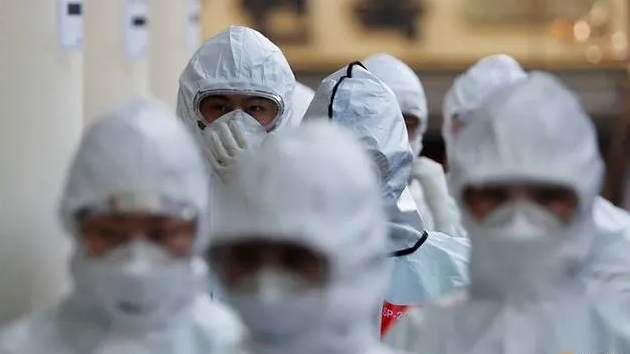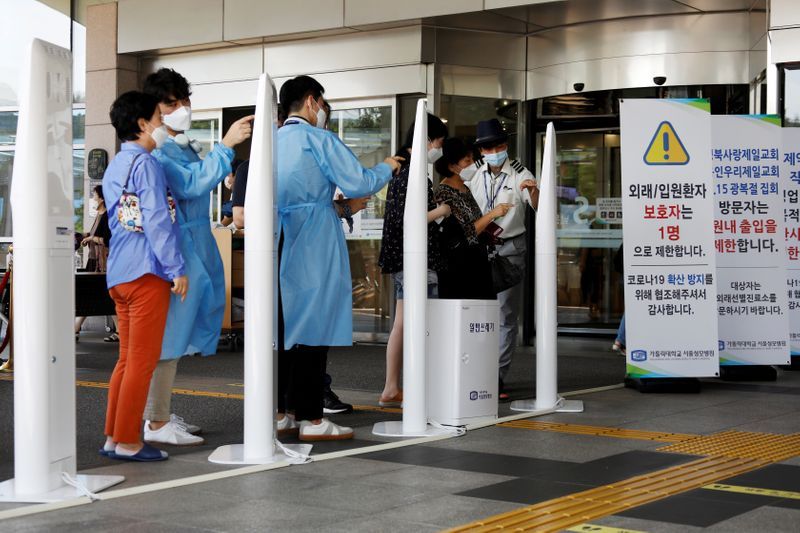
Medical workers in protective gear in Daegu, Republic of Korea on March 8, 2020. (Photos: Reuters)
The Republic of Korea (ROK) government on Thursday vowed to double its critical-care hospital beds amid a severe shortage as the number of critical coronavirus patients continues to rise, highlighting the strain of the pandemic on even well-equipped countries.
The country confirmed 195 new COVID-19 cases on the day, raising the total caseload to 20,644, which marked the first time the figure fell to below 200 in more than two weeks since August 17, according to Yonhap News Agency.
The spike in critical cases, as the elderly make up an increasing proportion of patients amid a broader resurgence, marks a sharp turn for the nation that was seen as successful in crushing one of the worst early outbreaks of the novel coronavirus.
Fewer than 10 intensive-care beds were available in the greater Seoul area, a metropolis of 26 million people, as of Tuesday, health authorities said.
The Health Ministry said it will spend 100 billion won (84 million U.S. dollars) to acquire 500 beds for severely-ill patients nationwide by the middle of next year, aiming to secure at least 110 beds by the end of the month.
"We are also exerting our full efforts to enable stable treatment for the patients," Yoon Tae-ho, the ministry's director-general for public health policy, told a news briefing.

Visitors wearing masks to avoid the spread of COVID-19 fill out a form which is mandatory to get into a hospital in Seoul, Republic of Korea.
The country has 511 critical-care beds, mostly at public hospitals in Seoul and surrounding regions, but many of those are being used by less serious cases or patients suffering from other ailments.
As of Thursday, 154 COVID-19 patients were in serious or critical condition, up from 123 on a day before. The country had just 12 such cases before the second wave began to intensify two weeks ago, stemming from an outbreak among members of a church who attended a political rally.
It had kept the virus situation under control until early August. But the daily new infections have been in the triple digits since August 14, mostly traced to a conservative church in northern Seoul and an anti-government rally in the capital on August 15 Liberation Day. The figure soared to a near six-month high of 441 on August 27, Yonhap News Agency reported on Thursday.
The crisis is growing more acute as more than 40 percent of the country's new coronavirus victims are 60 or older, up from 20 percent a month ago, health authorities said.
The government has secured 320 more beds for virus patients in the capital area and seeks to add 77 more by Friday, health officials said, as the recent surge uprising outbreaks in the region.
For critically ill patients, the government plans to add 100 more hospital beds by the end of the month.
The government plans to arrange more beds in public hospitals would help address long-term needs but would fall short of curbing the current spread, said Woo Seoc-kyun, who steers a coalition of ROK doctors and pharmacist groups.
(With input from agencies)


